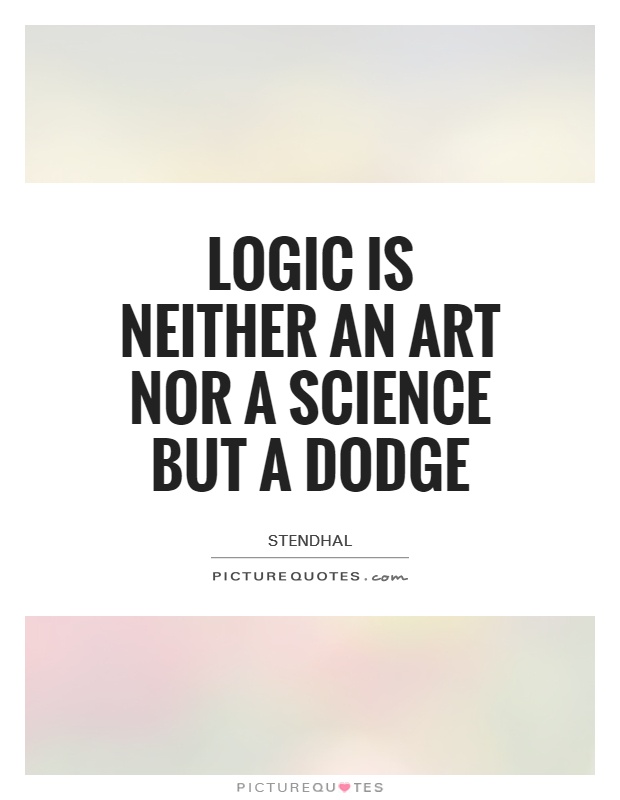Logic is neither an art nor a science but a dodge

Logic is neither an art nor a science but a dodge
In the context of Stendhal, the statement "Logic is neither an art nor a science but a dodge" can be interpreted in various ways. Stendhal, a French writer known for his psychological insight and keen observations of human behavior, often explored the complexities of human emotions and relationships in his works. In his novels, such as "The Red and the Black" and "The Charterhouse of Parma," Stendhal delved into the irrationality of human nature and the ways in which individuals often act on impulse rather than reason.One way to understand the statement in relation to Stendhal is to consider his portrayal of characters who are driven by their emotions rather than logic. In many of his works, Stendhal presents protagonists who are torn between their desires and societal expectations, leading them to make decisions that may seem illogical to an outside observer. For example, in "The Red and the Black," the protagonist Julien Sorel is a young man who is ambitious and intelligent, yet he is also impulsive and prone to acting on his emotions. His actions often defy logic and reason, leading to consequences that are both unexpected and tragic.
Furthermore, Stendhal's exploration of love and passion in his works also reflects the idea that logic can be a "dodge" when it comes to matters of the heart. In novels such as "The Charterhouse of Parma," Stendhal depicts characters who are consumed by their emotions and desires, often acting in ways that are irrational and unpredictable. Love, in Stendhal's world, is not a rational or logical force but a powerful and uncontrollable one that can lead individuals to make choices that defy reason.
Overall, the statement "Logic is neither an art nor a science but a dodge" in the context of Stendhal suggests that human behavior is often driven by emotions and impulses rather than rational thought. Stendhal's works challenge the idea that logic is the ultimate arbiter of truth and instead emphasize the complexities of human nature and the ways in which individuals navigate the often murky waters of their own desires and motivations. In this sense, logic can be seen as a "dodge" – a convenient but ultimately inadequate tool for understanding the complexities of human behavior.












 Friendship Quotes
Friendship Quotes Love Quotes
Love Quotes Life Quotes
Life Quotes Funny Quotes
Funny Quotes Motivational Quotes
Motivational Quotes Inspirational Quotes
Inspirational Quotes